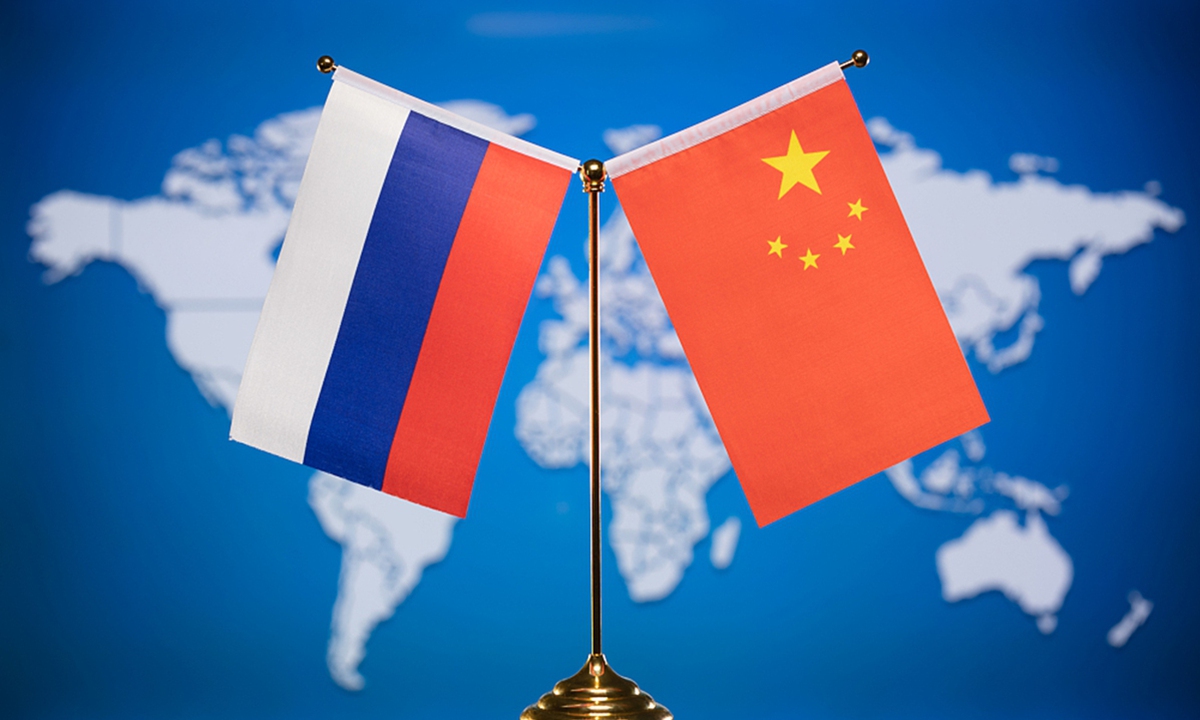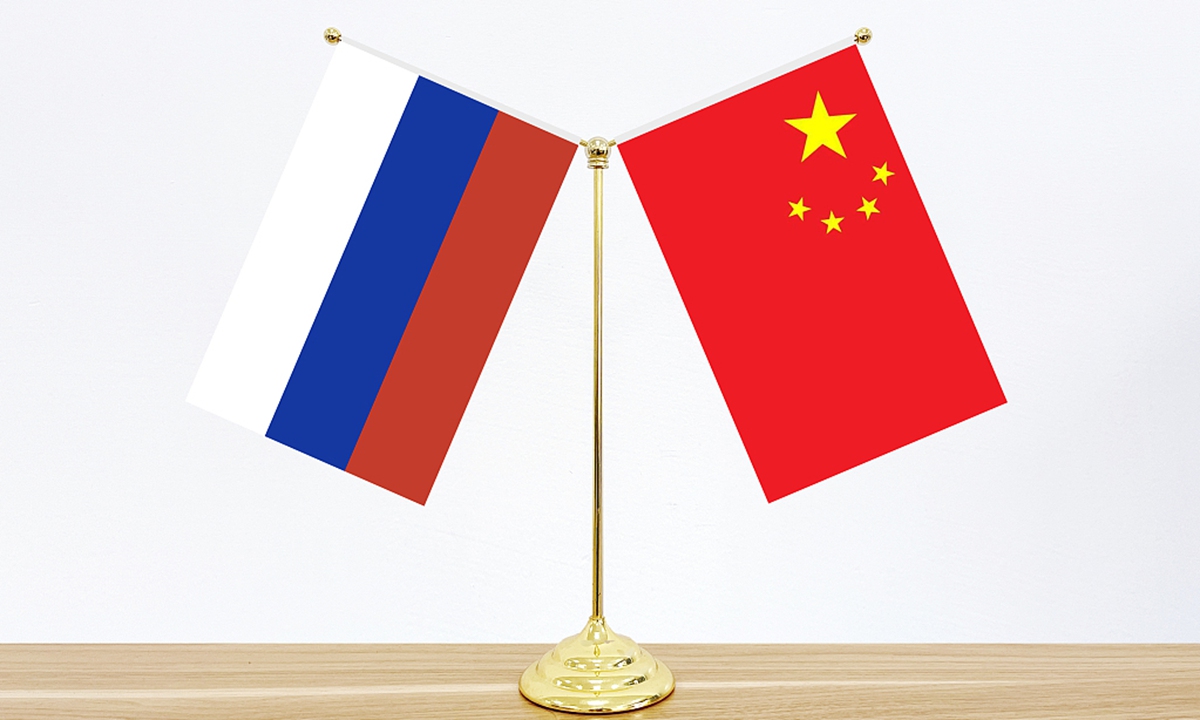Putin says highly of Chinese vehicles of ‘higher quality’ as 70% of Russian consumers willing to buy Chinese goods

Imported Chinese cars are being declared to customs at the port of Sukhodol in Shkotovsky District of Primorye Territory, Russia. The Sukhodol seaport, which previously focused only on coal exports, has begun handling imports. Customs officials have processed the first import cargo to arrive at the port, which consisted of 548 automobiles from China's Haval and Changan. In future, there are plans to turn the port into a multipurpose hub that handles containers, grain and other general cargo. There are also plans for liquefied natural gas, methanol and mineral fertilizer facilities and a fish cluster.Photo: VCG
According to Sputnik News on Thursday, Russian President Vladimir Putin congratulated Chinese manufacturers on their remarkable achievements in the automotive industry at the 15th VTB "Russia Calling!" investment forum. Some Russian people and Chinese businesspeople told the Global Times that Chinese products have achieved both strong sales and a good reputation in Russia.
The Sputnik News wrote a report on Thursday titled "President Putin talks about the popularity of Chinese cars in Russia: Chinese products have become higher quality".
A study by Yandex Market, the e-commerce platform of Russia's largest search engine, shows that about 70 percent of Russian customers are willing to purchase products from China, according to a Russian financial media outlet on November 29, 2024.
According to the study participants, high-quality products from China include electronics and appliances, clothing and footwear, as well as household items. Some emphasized the quality of Chinese automobiles.
A recent survey by RIA Novosti also shows that Russians' impressions of Chinese products are increasingly positive.
"I still remember when I first came to Moscow to expand the Russian market, local people didn't like Chinese products. I used to stand on the street in the cold, introducing our products to people one by one," a Chinese clothing vendor surnamed Chen told Global Times.
"At that time, they thought Chinese products were of poor quality and lacked novelty," Chen added.
This view was echoed by Kolosovskii Ian, a Russian student currently studying at Shandong University. He said that in the past, his family wouldn't consider buying Chinese products, but now, "I think if you ask a Russian person about this, they might even forget that the furniture in their home is made in China, or that the clothes they're wearing are also from China. Chinese products have become a part of daily life for Russians."
A similar sentiment is shared by Hou Jinlong, Executive Vice President of China's Hebei Chamber of Commerce in Russia. He told Global Times: "A few years ago, we actively invited some domestic companies to participate in trade fairs in Russia, but we almost hit a wall everywhere. People were not confident in their products and thought it was difficult to break the stereotypes Russians had about Chinese goods, so they were unwilling to come."
Now, things are completely different. He said, "The Russian market has responded very well to Chinese products, and more people are willing to do business here. The most obvious sign of this change is that in recent years, the number of our members has been continuously increasing, with members covering various fields such as automobiles, auto parts, hardware, clothing, and household goods."
"From the initial lack of attention at trade fairs to now, some products no longer need promotion and are already sold out online," he said with a smile.
In recent years, economic and trade relations between the BRICS countries have become increasingly close. Among them, e-commerce trade between China and Russia has developed rapidly and become an important area of economic cooperation between the two countries, according to CCTV.
Russian industry experts said that by 2027, e-commerce trade between China and Russia could increase sixfold, reaching $12 billion, making it one of the fastest-growing sectors in the BRICS countries. Through e-commerce platforms, the distinctive products of both countries are easily accessible, and businesses in both countries are embracing new opportunities.
"In Russia, there are also e-commerce platforms for trade, similar to Taobao, and they are now very popular. Most of the products on these platforms are from China," Kolosovskii said.
A few months ago, Chinese cars also started to be sold in the Russian market through e-commerce platforms, and their sales have been steadily increasing, CCTV reported.
Shakhnoza Azimova, a PhD student at the Institute of Scientific Information on Social Sciences of the Russian Academy of Sciences, told Global Times that she recently bought a Chinese car.
"My choice of a Chinese brand is related to the fact that it is the newest brand compared with European brands in the Russian market," she said. "The appearance of the car is also attractive, which is one of the preferences of women. Compared to other brands, Chinese cars are both innovative and price-competitive."
Creativity has become a new "tag" for Chinese products.
Veronika Manakova, a second-year student at MGIMO University (Moscow State Institute of International Relations), told Global Times, "What I find most crucial is the fact that Chinese sellers are more creative and tend to come up with extraordinary solutions even for basic products, such as bright outfits, cute accessories, and stationery goods."
"It wouldn't be erroneous to mention that my impression of Chinese products has improved incredibly and now I regard buying these goods as the most sagacious option in many cases," she said.
Shakhnoza mentioned that when purchasing her car, the sales staff provided her with very detailed information about it, from manufacturing to delivery. Chinese companies have been continuously improving in terms of service, she added.
Veronika also said, "Purchasing Chinese goods was once challenging, but companies have now improved product variety, quality, and delivery systems. As a result, Chinese products have become popular in Russia, with some sectors even leading the market due to their affordable prices and good quality."
Kolosovskii, who uses a Vivo phone, summarized Chinese products as being affordable, of good quality, and having modern design. He said that his whole family in Russia uses Chinese brand phones and computers. Recently, his father has also decided to buy a Chinese brand electric vehicle.
"Now, Chinese goods are the leaders of the market in Russia. I hope and am confident that Chinese products will soon prove their reliability in various categories and become indispensable," Shakhnoza said with certainty.



